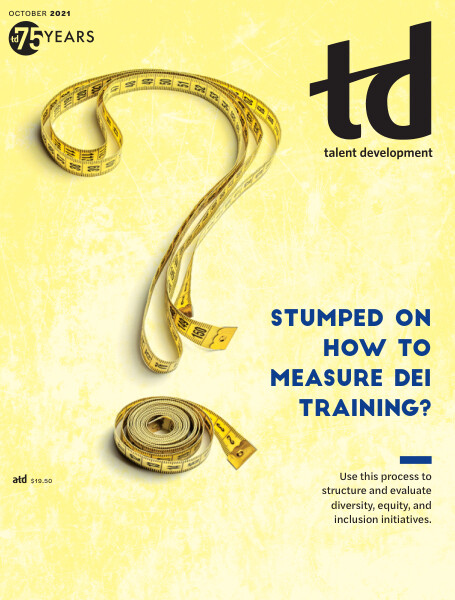TD Magazine Article
Emotional Compensation
Stiff competition for skilled workers is causing employers to take another look at the way they reward employees.
Fri Oct 01 2021
Bookmark
Stiff competition for skilled workers is causing employers to take another look at the way they reward employees. Michael Lee Stallard contends in the Government Executive article "To Cope with the Labor Shortage, Raise Emotional Compensation" that bonuses and other financial incentives are not the only forms of compensation.
"Addressing ‘emotional compensation' will be increasingly important and valued by employees," Stallard writes. "Boosting emotional compensation is based on meeting seven universal human needs to thrive at work: respect, recognition, belonging, autonomy, personal growth, meaning, and progress."
To support his position, Stallard highlights organizational practices that reflect an understanding of emotional compensation. Companies that pay well emotionally often invest in talent development initiatives. For example, Stallard suggests that Costco's commitment to internal mobility and training provisions are examples of emotional compensation. In addition, he cites how the US Navy invests in growing and developing sailors in its ranks as a form of emotional compensation.
Ultimately, employers pay emotional compensation by implementing programs and practices that produce positive emotions for staff. Stallard notes that "Leaders and organizations that get the emotional compensation piece right will gain a competitive advantage."

More from ATD




